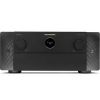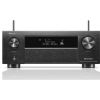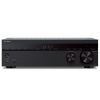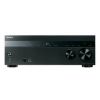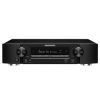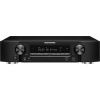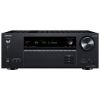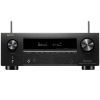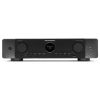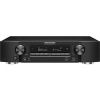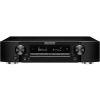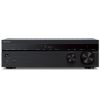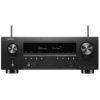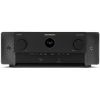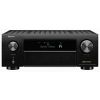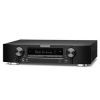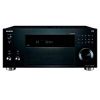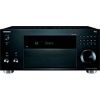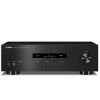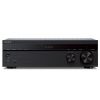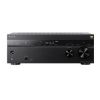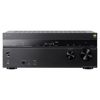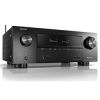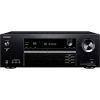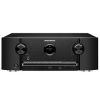Yamaha RX-V6A vs Denon AVR-X4100W review


The Yamaha RX-V6A vs Denon AVR-X4100W comparison proves that these receivers have many common features.
Amplifier
Considered AV receivers have the same number of channels 7.2. Regarding power, then RX-V6A has such a W/Ohm ratio - 100/8 when AVR-X4100W has a power of 125/8, 165/6. The THD is 0.06% for the RX-V6A but 0.05% for the AVR-X4100W. Both the RX-V6A and the AVR-X4100W support Bi-amping. Each of the AV receivers can transmit an audio signal directly to the amplifier and bypasses any DSP processing. Rivals from our review have Bluetooth support. The Yamaha RX-V6A has support for AirPlay, AirPlay 2, and its competitor in our comparison - AirPlay. Spotify can be used on each receiver. The RX-V6A can work with the audio stream from Deezer, TIDAL, Pandora, SiriusXM, Qobuz, and the AVR-X4100W can receive a content from Pandora, SiriusXM. HDMI signal transmission in standby mode is implemented in each of the devices. Both rivals can scale the resolution of the incoming HDMI signal. The HDR standard - Dolby Vision is supported by these receivers.
Extensive connections
The Yamaha RX-V6A has 7/1 HDMI inputs/outputs versus 8/3 HDMI connectors of the Denon AVR-X4100W.
 The HDMI Audio Return Channel (ARC) feature supports both devices. The HDMI eARC is available only on the RX-V6A. The Consumer Electronics Control (CEC) feature is present in most modern AV receivers and the models in our comparison are no exception. These compared receivers have a built-in phono stage for connecting a vinyl player.
The HDMI Audio Return Channel (ARC) feature supports both devices. The HDMI eARC is available only on the RX-V6A. The Consumer Electronics Control (CEC) feature is present in most modern AV receivers and the models in our comparison are no exception. These compared receivers have a built-in phono stage for connecting a vinyl player.
Additional features
The RX-V6A supports 2 Multi-room zones, versus 3 for the AVR-X4100W. It is also worth noting that the ECO mode is presented in each of the receivers. Both RX-V6A and AVR-X4100W can be configured using the Setup assistant.
Multichannel surround
Both devices have support for Dolby Atmos multichannel audio format. A surround technology DTS:X is supported only by the RX-V6A.
General
Item
Model
Brand
Reviews
Amplifier
Channels
Stereo power (RMS), W/Ohm
Output impedance, Ohm
Frequency response
THD in stereo, %
Audio features
Digital to analog converter (DAC)
Bi-amping
Pure direct (straight)
Auto speaker calibration
Speaker A/B switching
Other audio features
Connectivity
Wi-Fi
USB
Bluetooth
Ethernet (RJ45)
DLNA
MHL
Streaming services
Apple Music (AirPlay)
Amazon Music
Spotify
Other streaming services
Extensive connection
HDMI input/output
HDMI ARC (Audio Return Channel)
HDMI eARC (Enhanced Audio Return Channel)
HDMI CEC
Digital content protection (HDCP)
Subwoofer output (LFE)
Headphone output
Optical digital input
Coaxial digital input
Composite input
Component input/output
Phono (MM) input
Front panel connectors
Multi channel preamp output
Video features
HDR (High Dynamic Range)
4K signal pass-through
8K signal pass-through
HDMI signal pass-through
3D signal pass-through
HDMI pass-through in standby mode
Video conversion
Analog to HDMI scaling
HDMI to HDMI scaling
Dolby Vision
Other video features
Additional features
Voice control
App control
Display
Tuner
Sleep timer
Auto power off
ECO mode
Graphical user interface (GUI)
Setup assistant
Firmware update
Other additional features
Multi-room
Multi-room zones
Zone audio output
Zone HDMI output
Multi-room control
RS-232
Remote control input/output (IR)
DC trigger output (12V)
Multichannel surround
Dolby Atmos
Dolby TrueHD
Dolby Surround
Dolby (other)
DTS:X
DTS HD Master
DTS Virtual:X
DTS Neural:X
DTS (other)
Auro-3D
IMAX Enhanced
Multichannel stereo
Audio file formats
MP3
WMA
AAC
WAV
FLAC
ALAC
Other audio file formats
Power
Operational power consumption, W
Standby consumption, W
Removable power cord
Dimensions
Size W x H x D, cm/inches
Weight, kg/lbs
Other
Release year
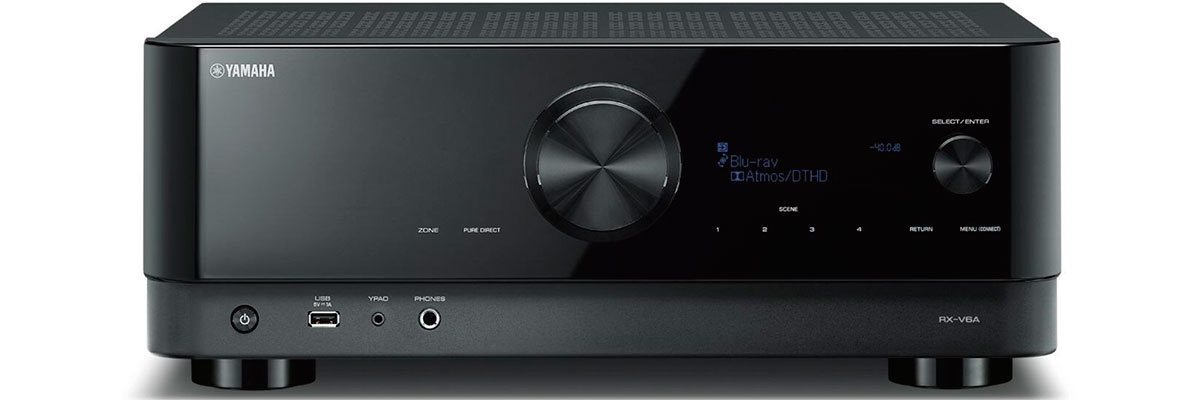
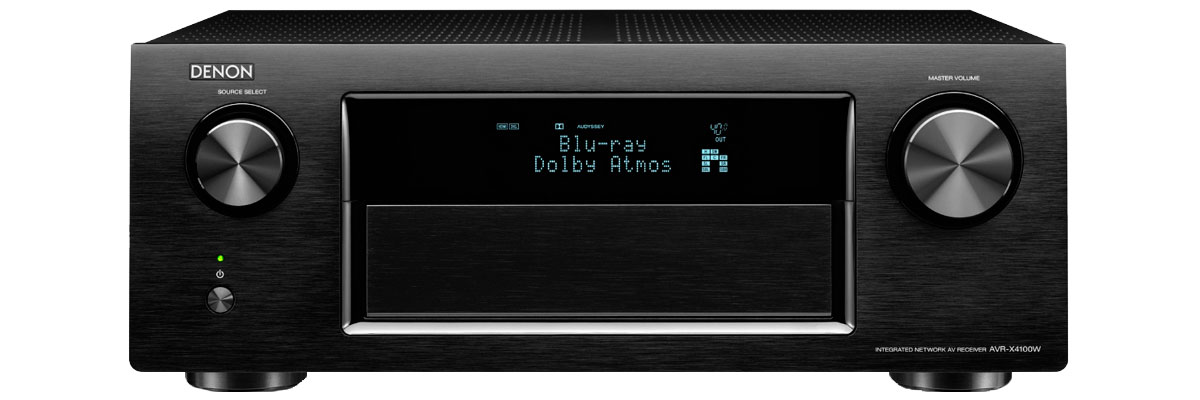


AV receivers SoundInspiration comparison rating
- 7.4Yamaha RX-V6A
- 8Denon AVR-X4100W
Latest receiver comparisons
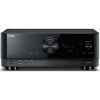
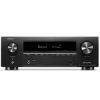
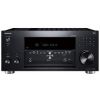
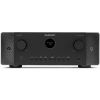
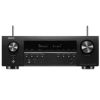
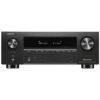
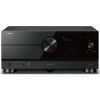
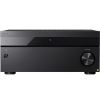
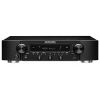
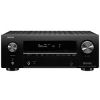
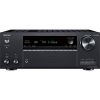
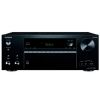
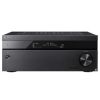

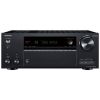

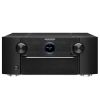
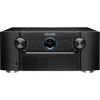
Popular receiver comparisons
